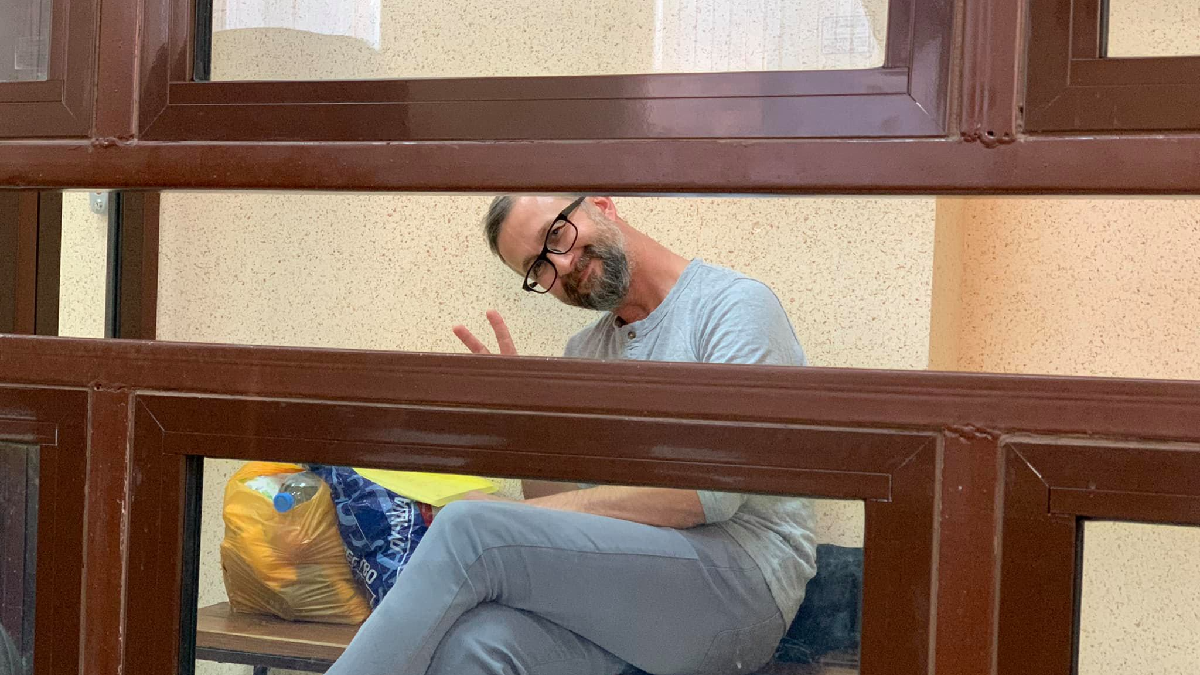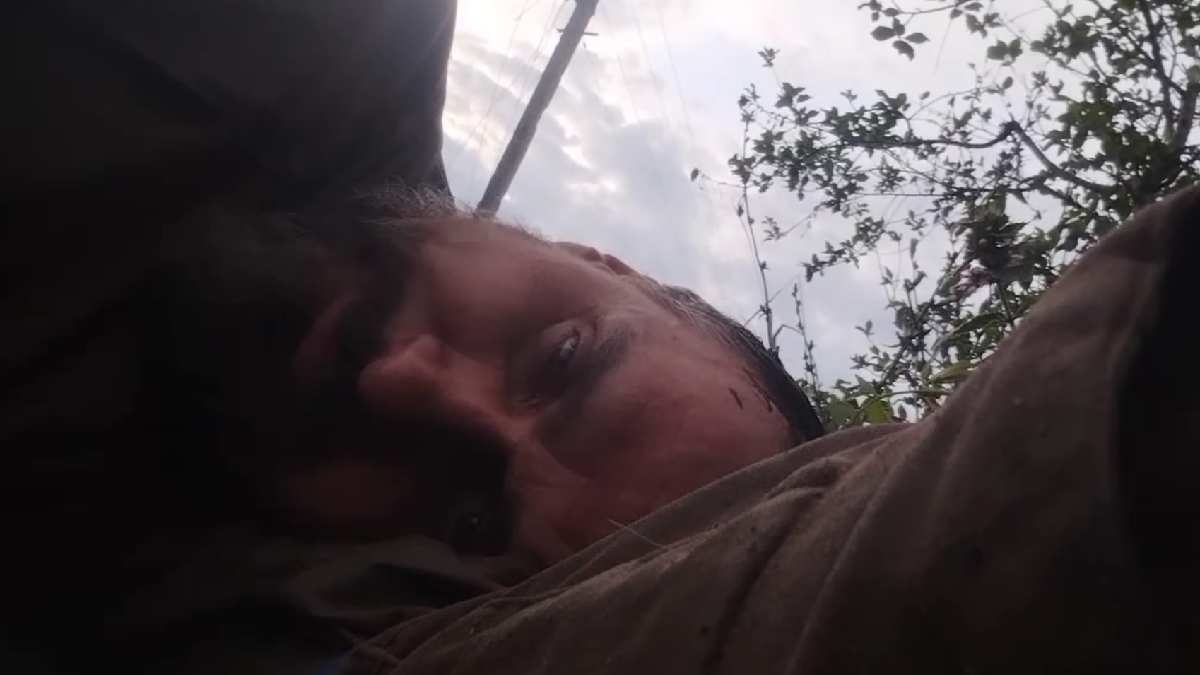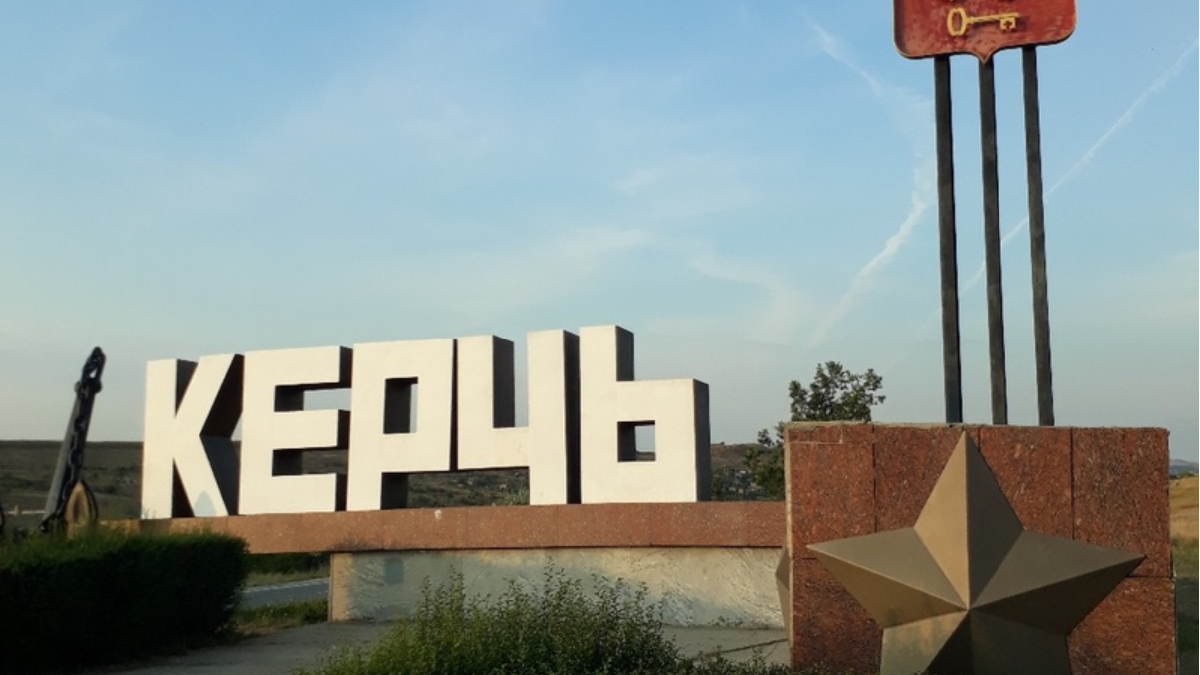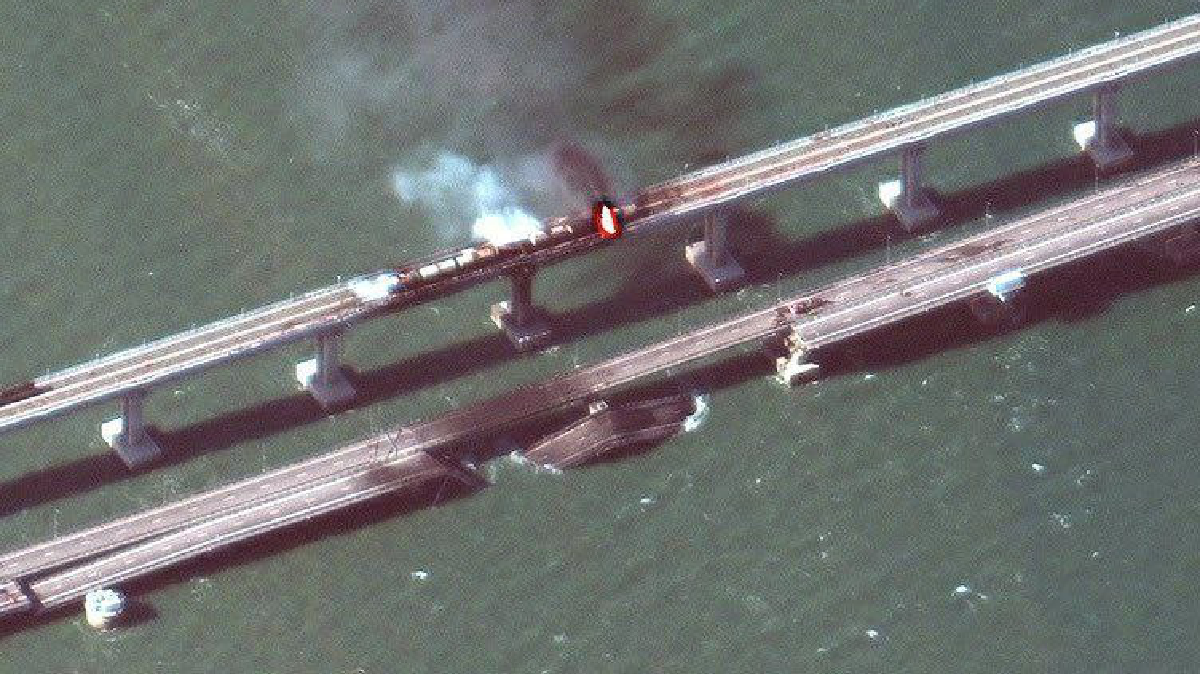Bells from the past. Punitive psychiatry in the occupied Crimea.

Nariman Dzhelyalov, the deputy chairman of the Crimean Tatar People's Majlis, who was illegally arrested in Crimea in August, was transferred from the Simferopol pre-trial detention center to the 15th ward of the Crimean Republican Psychiatric Hospital №1. The lawyer Nikolay Polozov reported about it on Facebook. He noted that this department conducts inpatient psychological and psychiatric examination of persons detained during the investigation.
More details about the case and punitive psychiatry on the occupied peninsula were discussed in the "Topic of the Day" with Mykola Polozov, a lawyer, Ilma Umerov, a former political prisoner and deputy chairman of the Crimean Tatar People's Majlis, and Andriy Ivanets, a historian.
Mykola Polozov noted that it is more difficult to visit a political prisoner now, because the rules have become stricter and now it is necessary to obtain permission from the head of the pre-trial detention center. The lawyer added that there were no grounds to transfer Nariman Jelal to a psychiatric hospital:
"The investigator simply issued a ruling. Transfer to a psychiatric hospital for inpatient examination does not require a court decision. The law requires at least that the investigator have doubts about the sanity of the accused, in his ability to defend himself. But it is obvious that there can be no doubt in Nariman's common sense. Therefore, of course, we regard this as a punitive action by the authorities”.
According to Mykola Polozov, the investigation pursues two goals. The first is to protect yourself by conducting an unnecessary examination and "then say that he is healthy." The second and main thing is that when a person is under examination, if during this period a court is held to extend the measure of restraint, where he is obliged to bring, then no one is brought from the examination.
“Now the terms of the examination will coincide with the term of detention and the investigation will have legal grounds not to bring him to court no matter what he can do. The examination itself lasts from 21 to 28 days and can be extended if necessary".
The lawyer added that the Russian authorities had already made many efforts to hide Nariman Jelal from the public and not allow him to comment on the conditions of detention. And the appellate court, when considering the defense's complaint, was held behind closed doors. The conditions of stay in a psychiatric hospital differ from the conditions of a pre-trial detention center, Mykola Polozov told about the first obstacles faced by Nariman Dzhelal's relatives:
“It is almost impossible to transfer products and things. The set of products that is allowed in the pre-trial detention center is not allowed in the clinic for some reason, there are other rules. Nariman's wife tried to make the transfer for 3 days and it was done with great difficulty. It is also important to understand how Umerov was held: he was placed in wards where there were really mentally ill people, which is a complete violation of his rights as a perfectly healthy person. How they did with Nariman - we'll find out later. And the third point, we are talking about punitive practices of Soviet psychiatry and a number of Ukrainian political prisoners said that law enforcement agencies used psychotropic drugs. Mykola Karpyuk spoke about it. We are very worried about whether they will apply the substances to Narmin, given that such a practice exists”.
He added that the investigator's decision to appoint an expert will be appealed, but this requires a document. Until the investigator handed it over. As soon as there is a document, there will be grounds to go to court and go through all the relevant instances, and then - an appeal to the ECtHR.
Ilmi Umerov, a former political prisoner and deputy chairman of the Crimean Tatar People's Majlis, also expressed his opinion on the actions of the occupying authorities.
“They use it to intimidate others and to break a particular person. In this case, he may have given other evidence. He does not admit guilt and in general this article is not for Nariman Dzhelyal".
He told his story of being in a psychiatric hospital. He was brought there from home, he was under a written undertaking not to leave:
“The first few days were very difficult. I was placed in the so-called 9th ward of a psychiatric clinic, where there are mentally or mentally ill people. They live in this department for 15, 20 years or more. I was in a separate ward, but this ward, like all the others, had no doors. Any patient could approach me, talk, cling. They are all different, some are calm, friendly, and some are aggressive. On the fifth day I became very ill, I even lost consciousness, apparently it was a hypertensive crisis. I was given a phone for 1 hour a day and allowed to bring food from home twice. I did not take any hospital food, no drugs, not even water. All that was brought from home and what I personally took from my wife or daughter. There were no psychotropic drugs for me”.
The former political prisoner added that he talked a lot with the hospital staff, in particular with doctors and nurses, paramedics. He found that he was the first "political" since the collapse of the Soviet Union".
“The practice started with me. I was the first and then almost all the Crimean Tatars who got into the "Hizb ut-Tahrir cases", or for other articles, they were all conducted through this psychiatric examination, the so-called. In fact, it is one of the methods of torture, I think, one big torture. The most difficult was physically. Morally I endured, but physically the body did not want to adapt. Only from the fifth day, when I became very ill, I was treated a little by doctors, specialists and the condition gradually improved and maybe I'm a little used to it. You are among the crazy - and you yourself become like crazy”.
Umerov said that the hour for visits given to him helped him stay. Sometimes about a hundred people came.
The example of Nariman Jelal and Ilma Umerov is not the first case of using psychiatry for punitive purposes. According to the Ukrainian Institute of National Remembrance, the systematic use of psychiatry to isolate dissidents began in the late 1950s and early 1960s. In April 1969, the head of the USSR KGB, Yuri Andropov, sent a draft plan to the Central Committee of the CPSU to expand the network of mental hospitals and improve their use to protect the interests of the state and society. Historian Andriy Ivanets spoke more about the parallels between the use of punitive psychiatry in the USSR and now Russia in the occupied Crimea:
"Citizens of Ukraine are being persecuted using the methods of illegal psychiatry. What is the similarity of the situation as in the Soviet Union persecuted dissidents, people in some ways disagree with the communist regime. We now see that the occupation regime uses compulsory psychological examination as repression against those people who declare some disagreement either with the existing political regime or have quality views that are forbidden in the Russian Federation but are allowed in Ukraine. Therefore, there is clearly a commonality between the use of repressive mechanisms and the use of psychiatric care for this purpose".
The historian added that in modern Russia undemocratic tendencies are gaining strength every year. They do not yet have the scale that was at a particularly critical time in Soviet times. But the trend as a whole is negative.
“Initially, punitive psychiatry was not used, and in 2016 it is already used. And now we see that it is being used more and more often”.
During the Soviet era, a working commission to investigate the use of psychiatry for political purposes was established at the Moscow Helsinki Group on January 5, 1977, to protect victims of punitive psychiatry. Thanks to the work of this commission In 1977, at the Congress of the World Psychiatric Association in Honolulu (USA), a resolution was adopted recognizing the fact of abuse of psychiatry in the USSR. By joint efforts of the democratic forces, on January 31, 1983, the All-Union Scientific Society of Neuropathologists and Psychiatrists of the USSR officially withdrew from the World Psychiatric Association. Commenting on the possibility of a repeat of this situation, Andriy Ivanets noted that Russian punitive psychiatry has not yet fallen to the level it was in the Soviet Union, but it is difficult to say today what will happen in the future. However, the aggravation of non-democratic tendencies and the consolidation of the authoritarian regime "should serve us as bells from the past in order to prevent this in the future".
We will remind, on September 6 the court controlled by Russia in occupied Simferopol arrested Nariman Dzhelyalov for two months. Russia's FSB blames him and two other Crimean Tatars - Aziz's cousins and Asan Akhtemov - for blowing up a gas pipeline in the village of Perevalnoye. On September 7, the FSB released a video in which the brothers pleaded guilty to sabotage. In a conversation with lawyer Ayder Azamatov, Aziz Akhtemov said that the special services used physical and moral pressure on them to obtain evidence beat them and threatened to shoot them.







